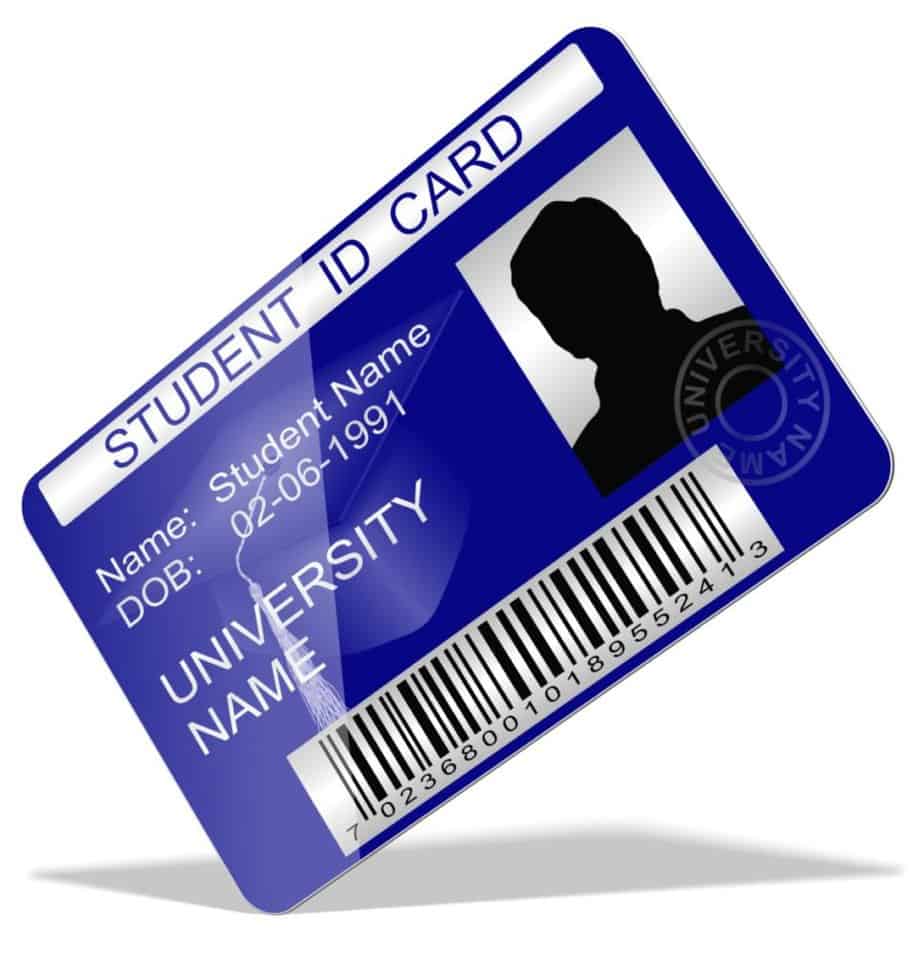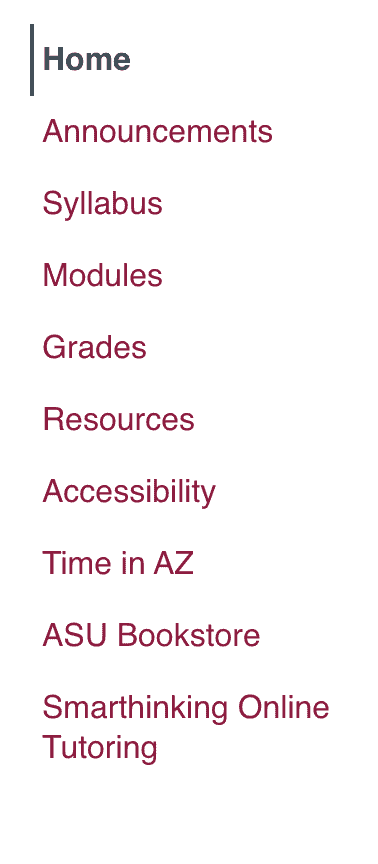At the beginning of a new semester, it can be overwhelming. I always find the course daunting and go into information overload. Luckily, over the years, I developed a new semester checklist that I do in the first day or two to help me start the semester off right.
To start the semester off right, students should read the syllabus and write down all the deadlines and contact information (including for tech support). They should get organized, find out how they learn best, set goals, email their professor, connect with peers, and start module 1 right away.
Before you start the new semester checklist, take a moment to make sure that you have done everything on the before the semester starts checklist .
.
Now that you are all ready, let’s go through everything on your new semester checklist.
Click hereto check out the most popular products for college students.
Read the syllabus
This seems obvious, but it is really important! Read (don’t skim) the syllabus. Write down any questions that you have.
Print, download, or bookmark the syllabus for your convenience so you can easily go back to it for reference.
Check out all the benefits of Prime Student. Click here
to sign up for Prime Student.
Figure out if you are dropping any classes
You need to decide if there are any classes you do not want to take. If so, drop them right away. Then check your registration so that you know that you are only enrolled in classes you want to take/are aware that you are taking.
Get your student ID

If you haven’t already, get your student ID. Even as an online student, you will need your school ID for proctored exams.
Normally the process is pretty simple, you send them a headshot of your standing in front of a plain backdrop, and they mail you the ID.
Set up your planner (Write down all the due dates)
Set up your planner and write down all the important information (such as contact information and office hours) in one place so that it is easy to find.
I think this planner on Amazon is so beautiful!
on Amazon is so beautiful!
Then go through and write down all the due dates for each course!
You can do this in your phone’s calendar (or whatever calendar app you have) or in a planner. I like using a planner so that I see all the assignments laid out before me, but the right scheduler for you is whichever one you will remember to actually use.
Don’t forget to also schedule in fun stuff!
Create a study calendar
Part of setting up your planner should be creating a study calendar by blocking out time in your schedule for studying.
should be creating a study calendar by blocking out time in your schedule for studying.
Even for asynchronous, self-paced classes, it can be a good idea to schedule in regular class time so that it becomes a part of your schedule and you ensure that you don’t fall behind.
Time management is one of the most important things that you need to learn as an online student .
.
Start an organization system
Another way to start a new semester strong is to start an organization system. Figure out how you will store and organize your readings, homework, and papers for each course.
Make sure to include a way to back up your files (such as cloud storage or an external drive). I personally use a Seagate external hard drive . I have used it for years and I love it! Seagate also has great customer service.
. I have used it for years and I love it! Seagate also has great customer service.
You should also figure out how you will organize your notes. If you are taking notes by hand, then a notebook or binder
or binder for each course is a great way to go. If you are taking notes on a laptop or tablet, I recommend Evernote or GoodNotes.
for each course is a great way to go. If you are taking notes on a laptop or tablet, I recommend Evernote or GoodNotes.
Learn the tech
If you are taking an online class, you need to make sure that you are familiar with the learning management system (Blackboard, Canvas, etc.). I have used both Blackboard and Canvas for many classes, and I think they are both pretty easy to navigate.
and Canvas for many classes, and I think they are both pretty easy to navigate.
They are fairly self-explanatory, but if you need help, they each have walkthrough videos and help sections with guides. For help understanding Canvas, check out our guide How to Use Canvas as a Student: Step-by-Step Walkthrough .
.
You can also leave any questions you have in the comments section or send me a message, and I’d be more than happy to help you.
Click on all the pages that you can
One way to make sure that you are familiar with the layout is to click on all the buttons that you see.
Look on the side, and open each option:

Then open the pages that you find there. Really take the time to explore the course layout so that you know where to find the information that you need later on and can be confident that necessary information isn’t slipping through the cracks.
Find out how to get technical help
Most online colleges offer technical support.
Make finding the tech support number or other contact information and writing it down in a safe place (like your planner or syllabus) a priority on your new semester checklist.
or syllabus) a priority on your new semester checklist.
Email your professor
One of my favorite tips for a new semester is to email your professor on the first day (or right before).
This gives you a chance to introduce yourself, tell them something about their class that sounds interesting and you are looking forward to learning about, talk about any accommodations you may need, and ask any questions you have about the syllabus or course layout.
you may need, and ask any questions you have about the syllabus or course layout.
Check out our post on How to Email Your Professor (With Sample Emails) .
.
You should also consider attending your professor’s office hours (often over Zoom). This gives them a chance to put a face to the name.
Establishing a good relationship with your professor makes the semester easier and makes them more likely to be willing to write a recommendation or serve as a reference.
Tip: Also, make sure to check your syllabus and instructions before you email your professor with any questions.
Connect with your peers
From the start of the semester, make an effort to connect with the other students. Introduce yourself. Participate in the forums, discussion boards, and any group discussions.
Consider joining a study group or forming your own.
You can also look into any student organizations or volunteer programs that you may be interested in joining.
Find what learning method works best for you
One way to start the semester off right is to determine how you best learn.
You can do this by:
- Identifying your learning style
 –visual, auditory, or kinetic (hands-on)
–visual, auditory, or kinetic (hands-on) - Figuring out if you can study best in quiet or with background noise
- Determining if writing your notes by hand or typing them works best for you
- Learning if you remember things better when you read study guides, write out the information, or use flashcards
- Trying both longer work sessions and interval work sessions (such as using the Pomodoro technique
 of 25 minutes of working followed by a 5-minute break) and seeing which way works best for you
of 25 minutes of working followed by a 5-minute break) and seeing which way works best for you
Once you figure out how you learn best, it makes it easier to study and make the most out of school.
Set a goal

Make new semester goals. Decide that you want to devote more time to your schoolwork this semester or get better grades.
I go into each semester with the goal of getting an A, doing my best, and being interested and focused on what I am learning. These goals work for me, but I am a perfectionist (especially when it comes to school) so make whatever goal works for you!
Make sure your goals are realistic
If you were failing last semester, then setting a goal for straight A’s might not be realistic. It is important to set a goal that challenges you but that you can actually achieve.
Form realistic expectations before beginning each semester.
Maybe that means completing all the assignments, not skipping class, asking for help if you are confused, interacting more with the other students, or engaging in group discussions more.
Break your goals down
You want to make both big goals and small goals. Setting a goal of studying more is great, but it can also be intimidating, or you may not know where to start.
So break this down into more manageable action steps, such as:
- Joining a study group
- Reviewing each chapter before you read the next
- Scheduling X study sessions a week
Write them down and tell people
Another important part of goal setting is accountability. Write your goals down and keep them someplace where you will see them frequently.
Also, tell people about your goals! This adds external accountability too.
Start Modules right away
Once you have done these steps, start the modules (either 0 or 1) right away. They are often posted a couple of days before the course even starts so that you can get a head start. Start the semester by being proactive instead of procrastinating.
There you have it. This is my new semester checklist to start the semester off right. They are tried and true. Let me know how they work for you!
To learn more, check out 20+ Ways to Prepare for Online Classes .
.


